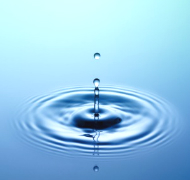UN 2023 Water Conference
The UN 2023 Water Conference is being held from March 22 to 24 in New York, marking the first summit on water in 50 years. The conference will be a watershed moment to mobilize member states, the UN system, and stakeholders alike to take action and bring successful solutions to a global scale.
The Paris Moment for Water
The conference could be a ‘Paris moment’ for water, as described by the special envoys for water from the co-hosting countries, Tajikistan and the Netherlands. The conference seeks to bring greater focus on water, which is a critical foundation for many of the 17 Sustainable Development Goals, including health, food, gender equity, education, livelihoods, industry, climate, and the environment.
The Global Water Crisis
According to the World Meteorological Organization, around 3.6 billion people struggle to get enough water to meet their needs for at least one month every year. Despite safe water and sanitation being a human right, billions of people lack access to these essentials for life, as stated by the United Nations.
The Importance of the UN 2023 Water Conference
The UN 2023 Water Conference could be a crucial step to ensure the sustainable management of water and sanitation for all, as per UN Sustainable Development Goal 6. It also marks the halfway point through the International Decade for Action “Water for Sustainable Development” to raise awareness of the global water crisis and decide on action to achieve internationally agreed water-related goals.
The Water Action Agenda
The conference is expected to adopt the Water Action Agenda, which represents voluntary commitments of countries and stakeholders to meet global water-related goals and targets. The Water Action Agenda aligns with the five themes that support the SDG 6 Global Acceleration Framework, including water for health, water for sustainable development, water for climate, resilience, and environment, water for cooperation, and the Water Action Decade.
The Growing Demand for Water
The world’s growing population, coupled with economic development and changing consumption patterns, means that the demands on water resources are far greater than 50 years ago. The gap between water demand and supply is estimated to be 40% by 2030, with a dramatic and unequal increase in demand between countries, as stated in the World Economic Forum’s Global Risks Report 2023.
Month: Current Affairs - March, 2023
Category: Important Days & Events Current Affairs


